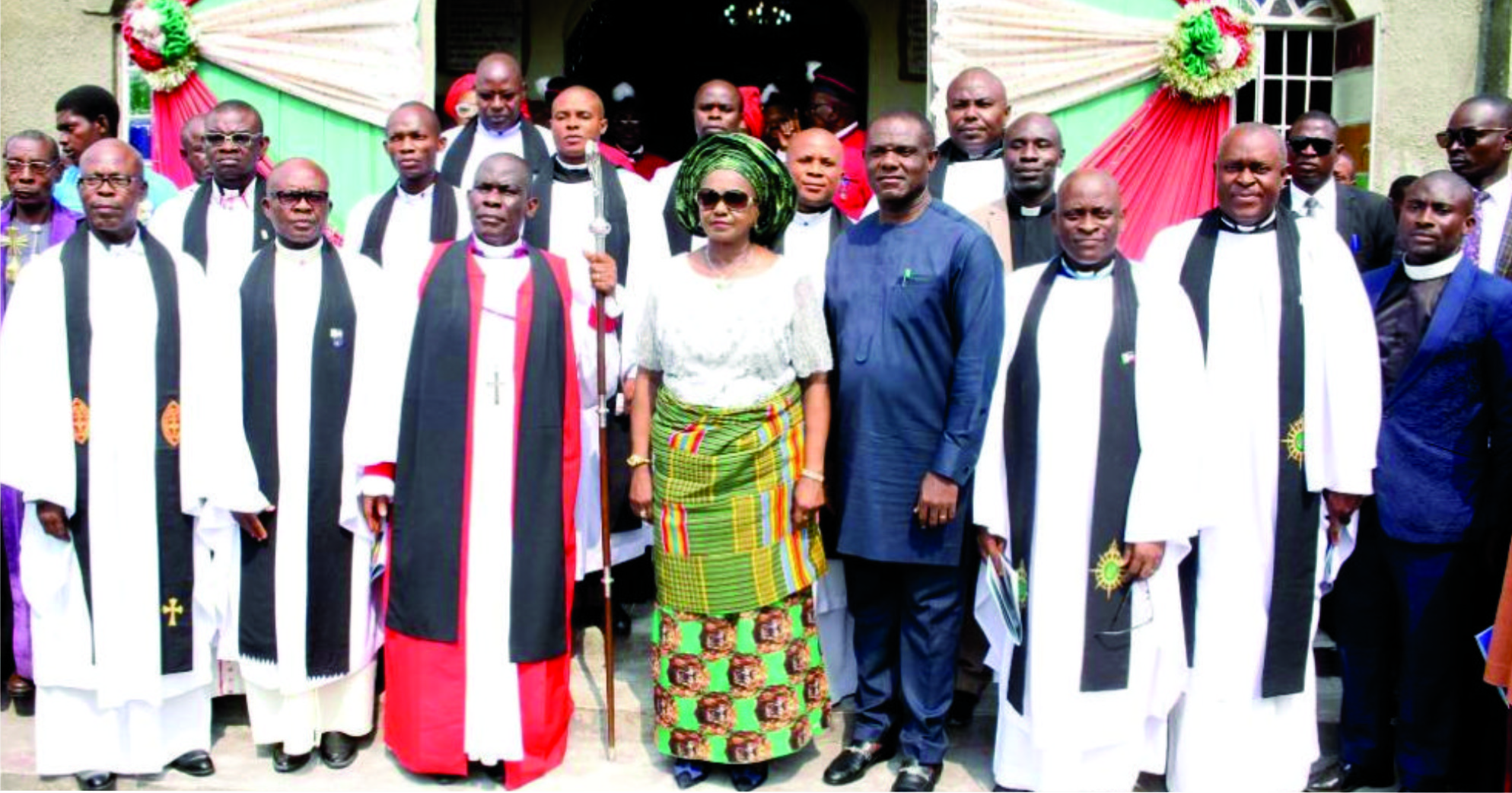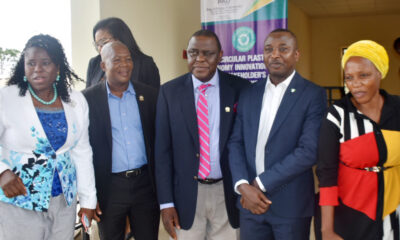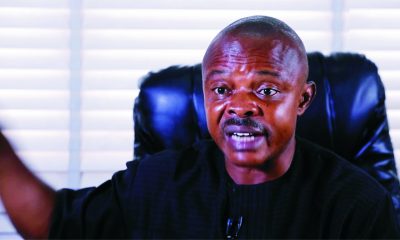Featured
Bestiality Of Power: Modus Operandi (6)

In this concluding part of the series, effort will be made to pick out and clarify the various methods and strategies which had been used over many centuries to apply power as an instrument of bestiality.
Firstly, it is quite instructive that ancient Jews classified humanity into 12 categories, commonly known as the 12 tribes of Juda. Each of these classifications represents definite life-qualities of which the wandering or marauding quality is one.
Human races and groups bear various life qualities, distributed all over the earth, and by breeding and marital processes, there came to be some inter-connectivity, such that there is no absolutely pure race. Tribes that were born to rule and those that would be fetchers of water and hewers of wood, cannot make absolute claims to such inheritance, because, much water had passed under the bridge over the past millennia.
Tribes of wandering marauders, sea-farers, priests, etc, hardly remain pure and intact now, as a result of many factors. Two major proclivities or propensities emerged strong in the process of human interactions and developments. One is a fanatical instinct of domination or obsession with territorial control, and the other is religious fanaticism. These two tendencies have a common root, which has to do with the mind.
Studies in the operations of the human mind show that the search for security and material well being resulted in an imbalance in the wholesome utilisation of the resources of the mind. The outcome was an excessive development of the objective or intellectual portion of the brain.
Where the whole brain is working in harmony there is usually some element of ethical morality balancing objective rationality, ensuring justice in all dealings. It is called humanistic value.
Those who had relied solely on objective sensory mechanism of the brain soon discovered that force, fear and intimidation always gave them some edge over other people in their dealings. To avoid physical conflicts and reprisals; cunning, subterfuge and pretences served as alternative strategies of taking undue advantage of others. Over a long period of time, this strategy developed into a standing culture or mindset.
Power soon became a by-product of the criminal mind, but to avoid immediate conflict, power has to be applied with tact and caution. An example is Wole Soyinka’s ancient parable of the colonial victim – when the missionaries came, say the converts, they pressed the bible into our hands, told us to shut our eyes, kneel on the ground and pray. When we opened our eyes, we still had the bible, but the land was gone.”
It is no mischief to say that a great deal of criminal activities are committed under the invocation of the Name of the Lord. Thus, abusers of power usually hide under the mask of religion. From personal transactions to international trades and diplomatic affairs, not all those who use God’s Name mean well.
Trans-continental acts of brigandage were usually facilitated by the availability of superior technologies. In the modern times, fear of exposures, protests and condemnations make abusers of power to use hypocrisy, cunning, treachery, etc, to do exploits. Even state policies and programmes serve as subtle means of abuses of power. From the invasion of foreign territories as in the past, the power game is now localised, it is internal imperialism.
Allocation of oil blocks to individuals rarely go with the wherewithal to operate it; so foreign partnership comes in. Similarly, to plunge into deeper waters, the strategy is to fly a kite first. For example, grazing cattle in other people’s farmlands, followed by use of guns, bolders swagger and impunity. Meanwhile, faceless sponsors would be monitoring reactions and planning new strategies. Expansionist and imperial proclivities can manifest anywhere and at different dimensions, some of which can grow into crisis point.
Another strategy of a bestial use of power is the exploitation of human weaknesses. Fears of different kinds, superstitious beliefs, gluttony and the love of comfort and quick gains are some of the ready human weaknesses that are easily exploited by people obsessed with power. Apprentices in this project start as fraudsters, and after the accumulation of some capital, then plunge into big business or politics. There may be accomplices or a formidable alliance of powerful groups, to form an operating empire.
To discover what it is about power which can make people blind and unreasonable, study the various things that people can easily fall prey to. These traps range from women, to the human tendency to escape from the rigour of duty. It is not always money that can serve as a trap, but treachery can, after trust has been gained. So, those who bestialise power rarely have any scruples in the use of treachery and deceit to derail those trust they have been able to win, with patience.
For political wheeler-dealers, the slogan remains true that there are no permanent friends or enemies, but permanent interests. The core or permanent interest is obsession with territorial control. The conscience rarely counts or stands on the way of those who use power as a weapon to dominate a small or large empire. Abuse of power is predatory mindset.
Bright Amirize
Featured
RSG Commits To Workers’ Welfare …. Calls For Sustained Govt, Labour Partnership

The Administrator of Rivers State, Retired Vice Admiral Ibok-Ete Ekwe Ibas, has assured the commitment of Rivers State government to workers’s welfare and industrial harmony in Rivers State.
The Sole Administrator gave the assurance after meeting with leadership of organized labour unions at the Government House, Port Harcourt on Wednesday.
Ibas reaffirmed government’s policy of prompt payment of salaries and pensions to workers and retirees, stating that all local government employees are not receiving the approved minimum wage.
He disclosed that approval has been given for payment of newly employed staff at Rivers State University Teaching Hospital and the Judiciary, while medical workers in Local Government Areas will now receive correct wages.
Ibas explained that, Government is reviewing implementation challenges of the Contributory Pension Scheme ahead of the July 2025 deadline, adding that Intervention buses have been reintroduced to ease workers’ transportation ,with plans to expand the fleet.
He said specialized leadership training for top civil servants will commence within two weeks, while due consideration is being given to implementing the N32,000 consequential adjustment for pensioners and clearing outstanding gratuities.
Ibas commended Rivers State workers for their dedication to service and called for sustained partnership with labour unions to maintain industrial peace.
“This administration recognizes workers as critical partners in development. We remain committed to addressing your legitimate concerns within available resources,” he stated.
The State NLC Chairman, Comrade Alex Agwanwor, thanked the Administrator for the steps taken so far with regard to workers welfare while appreciating his disposition towards alleviating the transportation problem faced by workers.
He also expressed appreciation for the government’s openness to dialogue and pledged continued cooperation towards achieving mutual goals.
The Rivers State Government assured all workers of its unwavering commitment to their welfare and called for continued dedication to service delivery for the collective progress of our dear State.
Featured
Labour Unions In Rivers Call For Improved Standard Living For Workers

The Nigeria Labour Congress (NLC), Rivers Council, has called for policies that will improve the economic situation of the country in order to ensure enhanced living standard for workers.
The State Chairman, Mr Alex Agwanwor, made the remark on behalf of the unions affiliated to Labour Congress during the 2025 workers day celebration in Port Harcourt, yesterday.
Agwanwor highlighted the demands of the Unions which included the immediate payment of pension arrears, implementation of the N32,000 minimum wage for pensioners, and payment of gratuities and death benefits without further delay.
“We are calling for the regulation and protection of e-hailing drivers, implementation of increments and promotions, and resolution of long-standing issues in the polytechnic sector,” he said.
Agwanwor on behalf of the unions appealed to President Bola Tinubu to reinstate the democratically elected Governor, Deputy Governor, and members of the Rivers State House of Assembly.
He stressed the importance of democratic governance and good working relationship with elected representatives.
According to him, the unions expressed disappointment over the imposition of taxes, increase in electricity tariff, and high cost of goods and services, which have further worsened the plight of workers.
“We urge the federal government to take measures to alleviate the suffering of citizens,” he said.
Featured
Tinubu committed to unlocking Nigeria’s potential – Shettima

Vice-President Kashim Shettima says President Bola Tinubu is committed to unlocking Nigeria’s full potential and position the country as a leading force on the African continent.
Shettima stated this when he hosted a delegation from the Hertie School of Governance, Berlin, led by its Senior Fellow, Dr Rolf Alter, at the Presidential Villa in Abuja last Wednesday.
He said Nigeria was actively seeking expertise from the global best institutions to enhance policy formulation and implementation, particularly in human capital development.
The Vice-President noted that President Tinubu was determined to elevate Nigeria to its rightful position as a leading force in Africa.
“The current crop of leadership in Nigeria under President Bola Ahmed Tinubu is ready and willing to unleash the full potential of the Nigerian nation on the African continent.
” We are laying the groundwork through strategic reforms, and at the heart of it, is human capital development.”
He described the Hertie School as a valuable partner in the journey.
According to him, Hertie School of Governance, Berlin, has track record and institutional knowledge to add value to our policy formulation and delivery, especially in this disruptive age.
Shettima reiterated the government’s priority on upskilling Nigerians, saying ” skills are very important, and with our Human Capital Development (HCD) 2.0 programme.
“We are in a position to unleash the full potential of the Nigerian people by enhancing their capital skills.”
The Vice-President acknowledged the vital support of international development partners in that effort.
” I want to thank the World Bank, the European Union, the Bill and Melinda Gates Foundation, and all our partners in that drive to add value to the Nigerian nation,” he maintained.
The Vice-President said human capital development was both an economic imperative and a social necessity.
Shettima assured the delegation of the government’s readiness to deepen cooperation.
” We need the skills and the capacity from your school. The world is now knowledge-driven.
“I wish to implore you to have a very warm and robust partnership with the government and people of Nigeria.”
Shettima further explained recent economic decisions of the government, including fuel subsidy removal and foreign exchange reforms.
“The removal of fuel subsidy, the unification of the exchange rate regime and the revolution in the energy sector are all painful processes, but at the end of the day, the Nigerian people will laugh last.
“President Tinubu is a very modern leader who is willing to take far-reaching, courageous decisions to reposition the Nigerian economy,” he added.
Earlier, Alter, congratulated the Tinubu administration for the successful launch and implementation of the Human Capital Development (HCD) strategy.
The group leader described the development as ambitious and targeted towards the improvement of the lives of the citizens.
He expressed satisfaction with the outcome of his engagements since arriving in the country.
He applauded the zeal, commitment, energy and goodwill observed among stakeholders in the implementation of Nigeria’s HCD programme.
Alter said the Hertie School of Governance would work closely with authorities in Nigeria across different levels to deliver programmes specifically designed to address the unique needs of the country.
He, however, stressed the need for government officials at different levels to be agile and amenable to the dynamics of the evolving world, particularly as Nigeria attempted to successfully accelerate its human capital development aspirations.
-
Politics2 days ago
Bayelsa PDP Crisis Deepens As Factional CTC Sacks Party Management Structure
-
Niger Delta2 days ago
Health Professions Not Superior To Others – Bayelsa Dep Gov
-

 Nation2 days ago
Nation2 days agoCBEX Resumes Operations Despite SEC Ban, N1.2trn EFCC Probe
-
Women2 days ago
Justice Prevails Over Osinachi’s Death
-

 Featured1 day ago
Featured1 day agoLabour Unions In Rivers Call For Improved Standard Living For Workers
-
Politics2 days ago
Enugu LP Loses Pub Sec To PDP
-
Niger Delta2 days ago
Diri Recommits To Support For Security Agencies …Cautions AIG, Sacks Youth Exco
-

 Nation2 days ago
Nation2 days agoOgun, Nike Art Gallery Set To Transform Olumo Rock












